KER Bopha
Former Data Analyst
Mr. Ker Bopha is a data analyst at the Cambodia Development Resource Institute (CDRI). He is currently designing data entry templates and cleaning survey data for various research projects, such as improving food security and market linkages for smallholders, Cambodia in the electronic and electrical global value chain. He helps generate simple descriptive statistics and collects and compiles secondary data as requested by research staffs involved in planning and conducting survey. Mr. Ker holds a Master in International Development from International University of Japan in 2002 and earned postgraduate diploma in development planning techniques from the Institute of Social Studies in 1997. His area of research interest is food security and child poverty and health.
Email : bopha@cdri.org.kh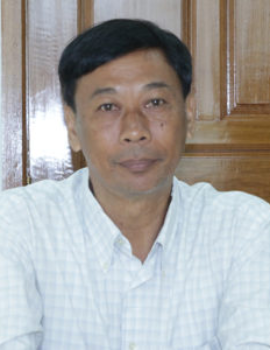
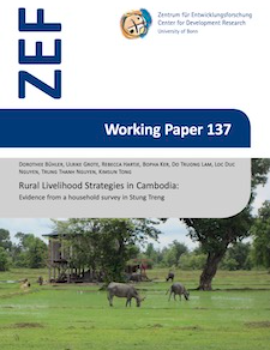
The overall objective of this discussion paper is to advance the knowledge on rural livelihoods in Stung Treng, Cambodia. In a cluster analysis, five clusters with very different livelihood strategies are identified based on a sample of 600 rural households. Despite the fact that nearly all households are engaged in some form of subsistence farming...
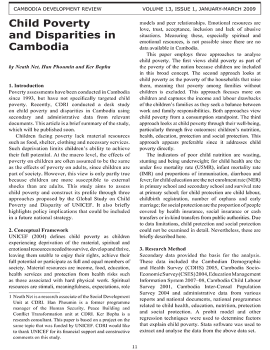

CDRI has been conducting the Moving out of Poverty (MOP) survey since 1996/1997 in 3 village household samples and this sample have been extended 11 villages across 7 provinces by 2020. CDRI surveys the same 1000 households every three years to track the poverty dynamics across the five main regions of Cambodia. This rare longitudinal dataset i...

Digital technologies have evolved at breakneck speed and spread, changing not only the digital ecosystem but also the way economy, trade and business are functioning. Massive digital transformation and its associated broad benefits for development have prompted most countries to embrace digital technology and incorporate it into their economic deve...

Over the last 20 years, the Kingdom of Cambodia has made remarkable progress in creating an enabling environment for business and investment, making the country favourable for foreign direct investment (FDI) in the region and creating commercial and export opportunities for local businesses. With this favourable business environment, Cambodia achie...

A collaboration with a team of researchers from the University of Ludwig-Maximilians (LMU), Munich to conduct an experimental survey to investigate the impact of persistent memories of violence and the impact of salient memories. The survey is to be conducted in 50 communes in provinces around the Tonle Sap, interviewing 1,500 randomly selected hou...
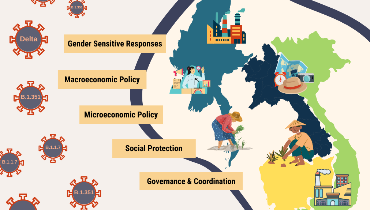
In close coordination with local governments and organizations, the project will identify gender-sensitive policies and good practices from the macro to micro level that will support the recovery process and improve resilience among vulnerable women workers and micro, small, and medium enterprises. It will facilitate policy dialogue and coordin...
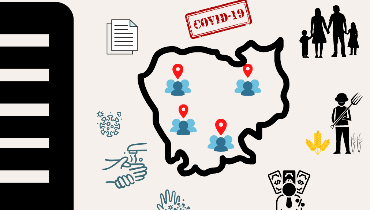
The recent coronavirus pandemic has triggered economic crises in both developing and developed countries. In the case of Cambodia, the number of infections is low relative to other neighbouring ASEAN countries, such as Thailand, Philippines, and Indonesia. However, several sectors have been seriously affected by the non-pharmaceutical measures and...

Under the Capacity Building Research and Development Fund of the Ministry of Posts and Telecommunications, United Nation Development Programme, Cambodia and the Russian Federation, the Cambodia Development Resource Institute in collaboration with the Cambodia Academy of Digital Technology (formerly known as the National Institute of Posts, Telecoms...

Growing rural-to-urban and international migration flows have sparked concerns about the investments in education of the children left behind in Cambodia. We draw on a panel household-level survey conducted in rural villages in 2014 and 2017 to analyze the relationship between parental migration and child schooling. The analysis reveals that c...
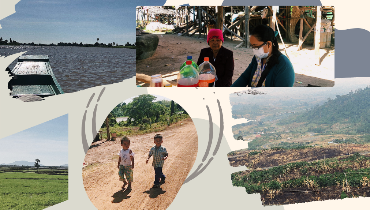
CDRI has collected and maintained a panel data of households in rural Cambodia. The work started in 1996-97 when CDRI conducted a benchmark survey of three villages—Prek Khmeng, Babaong and Trapeang Prey. Data collection has been regular (one every three years) surveying 1,183 sample households in 11 rural villages, representing the four geographic...
